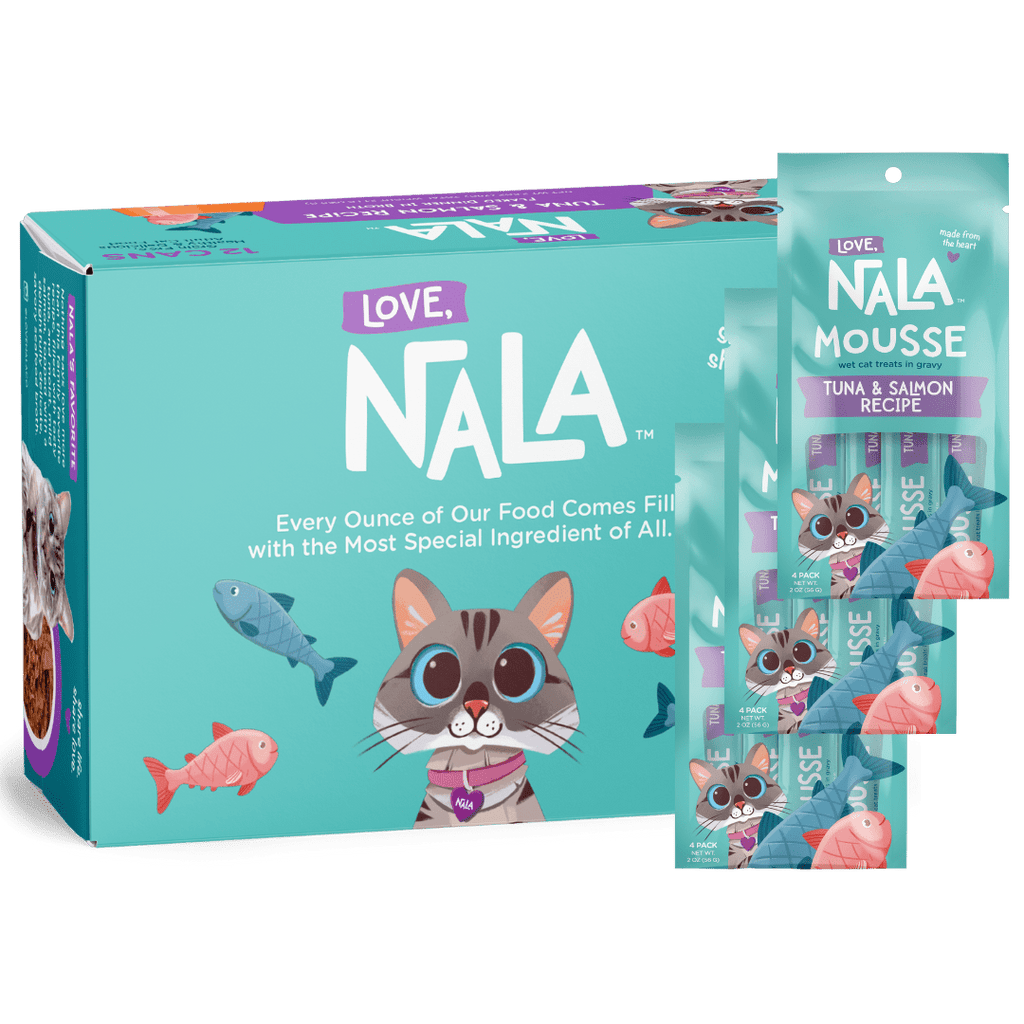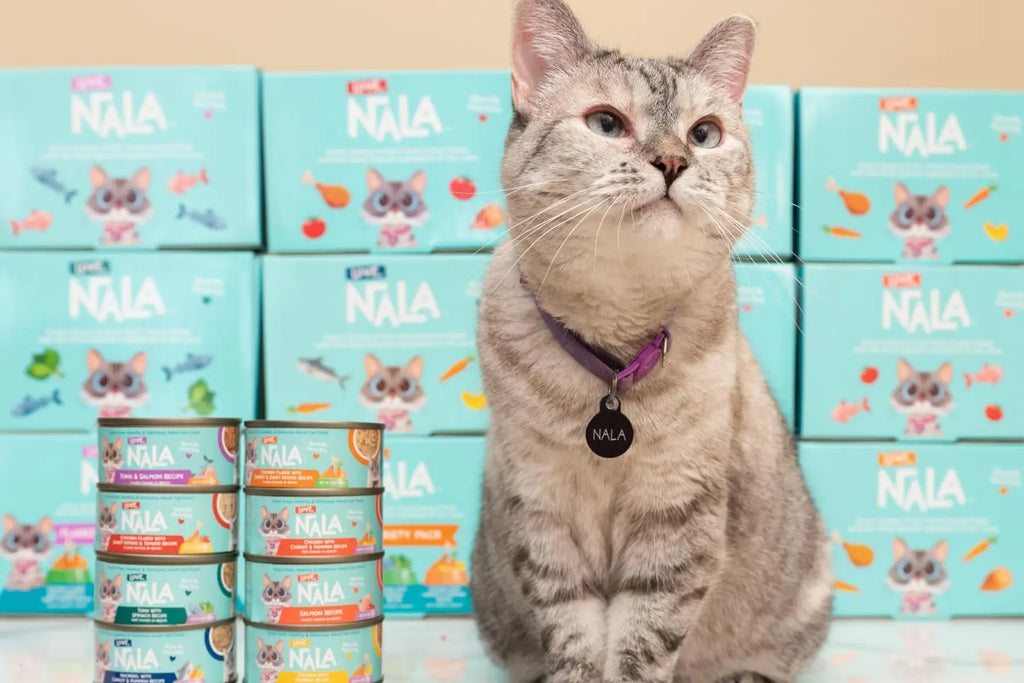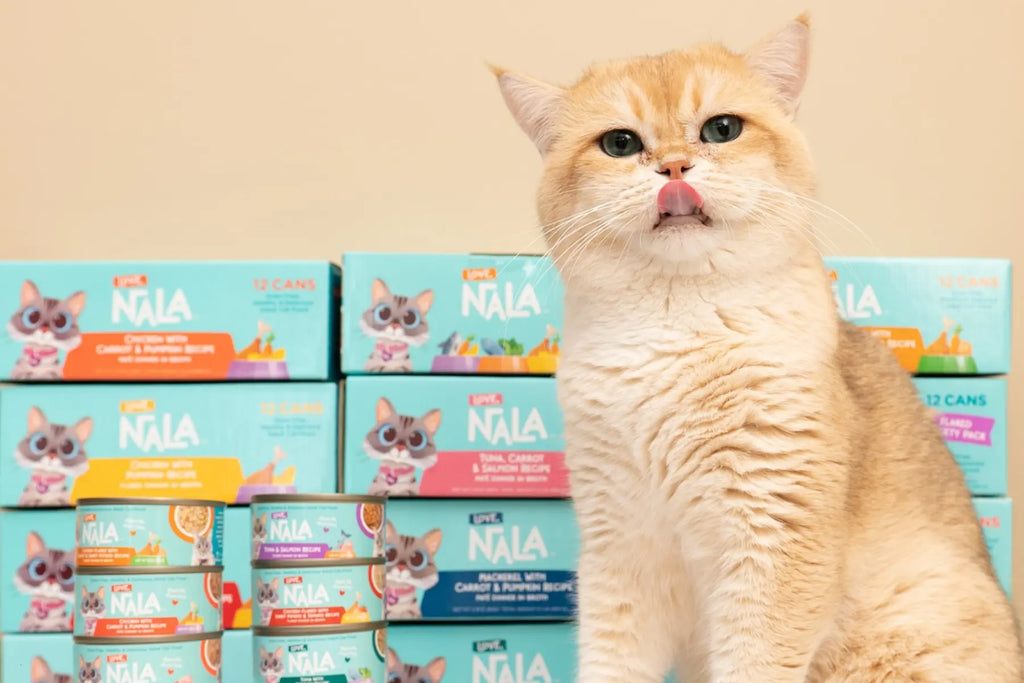As a pet owner, choosing the right food for your furry friend is essential for their health and well-being. One of the most popular choices for cat food is wet cat food. This is a healthy cat food option that can offer many benefits for your feline friend. In this article, we'll take a closer look at what this is, the nutritional content of high-quality wet cat food, how to choose the right wet cat food for your pet, how to incorporate it into their diet, and more.

The Benefits of Wet Cat Food
Moisture Content
Cats, being obligate carnivores, have evolved to derive most of their water needs from their diet, which in the wild, is mainly comprised of prey with a high moisture content. This adaptation means that cats naturally have a lower thirst drive and might not drink sufficient water on their own. Providing wet cat food can substantially increase their water intake. This is crucial as adequate hydration helps prevent several health issues in cats, including dehydration, urinary tract infections, and the formation of kidney stones. Moisture-rich diets support overall kidney and bladder health. By offering wet food, cat owners can mimic a more natural hydration process for their pets.
Nutritional Value
Quality wet cat food is specifically crafted to meet the complete nutritional needs of cats providing them with a diet that supports optimal health and vitality. This type of food is vital for maintaining their well-being and ensuring they remain active and healthy throughout their lives. Here's a breakdown of what it typically includes:
- High-Quality Protein Sources: The inclusion of proteins like chicken, fish, or beef in wet cat food is critical for the maintenance of lean muscle mass in cats. These protein sources are rich in essential amino acids, which are the building blocks of muscle tissue and are crucial for repair and growth. High-quality protein also aids in the proper functioning of the immune system and plays a vital role in hormone production. Ensuring that cats have a reliable source of high-quality protein in their diet is key to their overall health and well-being.
- Vitamins and Minerals: A balanced blend of vitamins and minerals in wet cat food supports a range of bodily functions. This mix includes vitamins A, C, D, and E, which play roles in vision health, skin maintenance, bone growth, and antioxidant protection, respectively. Minerals such as calcium, phosphorus, and magnesium are crucial for bone strength, metabolic functions, and nerve transmission. The right balance of these nutrients helps maintain the immune system’s health, supporting the body’s natural defenses against diseases.
- Essential Fatty Acids: Fatty acids like omega-3 and omega-6 are included in wet cat food formulations to promote a healthy skin and glossy coat. These fatty acids are not naturally produced by the body, making their inclusion in the diet essential. They help regulate the body's inflammatory response, support heart health, and improve cognitive function. For cats, omega fatty acids also play a significant role in vision development and may aid in preventing conditions like dry skin and other skin disorders.
Each component of their diet is designed to provide not just sustenance but also significant health benefits, contributing to their overall well-being. This attention to detail in their dietary needs helps cats remain vibrant and energetic, allowing them to enjoy a high quality of life.
Digestibility
The high moisture content softens the food, making it easier for cats to break down and absorb nutrients effectively. This can be particularly beneficial for older cats, cats with dental issues, or those suffering from illnesses that impair digestion. The improved digestibility ensures that cats gain the maximum nutritional benefit from their meals, which can aid in maintaining energy levels, a healthy immune system, and overall vitality. For cats with specific digestive issues such as IBS or chronic vomiting, wet food can be gentler on their system and contribute to more regular digestive functioning.
Flavor Variety
Wet cat food is available in a vast array of flavors, textures, and formulations, catering to the diverse preferences and nutritional needs of different cats. From pâté to chunks in gravy, the variety of textures can help maintain a cat's interest in meals and encourage appetite, which can be particularly important for picky eaters or cats with lower food drives. The strong aroma of wet food also stimulates a cat's sense of smell, making the food more appealing. This variety not only helps cat owners ensure that their pets are enjoying their meals but also facilitates nutritional completeness by making it easier to introduce a broad spectrum of flavors.
Weight Management
Typically, wet food has a higher protein content and fewer carbohydrates, aligning well with a cat's natural carnivorous diet. The lower calorie density combined with high moisture content helps make cats feel fuller sooner and for a longer duration, which can reduce their overall food intake and prevent obesity. This is especially important for house cats, which tend to have lower activity levels. Regular feeding of wet food can help maintain an ideal weight, reducing the risk of diabetes, heart disease, and joint stress, contributing to a healthier lifestyle.
Urinary Health
Cats are particularly susceptible to urinary tract issues, such as cystitis or urinary stones, which can be exacerbated by dehydration. Wet cat food plays a significant role in promoting urinary tract health due to its high moisture content. The increased fluid intake helps dilute the urine and ensures more frequent urination, which can help flush out toxins and prevent the formation of crystals or stones in the urinary tract.

The Nutritional Content of Wet Cat Food
Carbohydrates
Unlike many animals, cats have a limited need for carbohydrates. Their ancestral diet consists mainly of protein and fat, which means modern high-quality cat foods should contain minimal carbohydrate content. When carbohydrates are included, they should preferably come from digestible sources like vegetables and fruits rather than grains, as these can provide additional vitamins and minerals beneficial to cats. The focus should be on low-glycemic options that don’t spike blood sugar levels. Such choices not only align more closely with a cat's natural dietary patterns but also help in preventing obesity and diabetes, which can be a risk with high-carbohydrate diets. Ensuring that carbohydrates are not a primary ingredient but rather a supplementary one can help maintain your cat’s health and vitality.
Water
As emphasized before, hydration is immensely important for cats, especially considering their low natural thirst drive. Wet cat food plays a crucial role in ensuring adequate water intake, as it typically contains at least 75% water. This high moisture content is beneficial in preventing urinary and kidney diseases, which are common in cats. It also helps in the overall digestion process, allowing for easier absorption of nutrients and more efficient processing of food. Since cats often do not drink sufficient water, incorporating wet food into their diet ensures they receive the necessary hydration, which can contribute to a healthier and more active lifestyle. This makes wet cat food not only a source of vital nutrients but also an essential part of maintaining your cat's water balance.
How to Choose the Right Wet Cat Food
Ingredient Quality
It should primarily consist of whole food ingredients, closely mimicking a cat's natural diet. Cats are obligate carnivores, which means their bodies are designed to digest and utilize animal-based proteins effectively. Thus, the best-wet cat foods will feature real meat, poultry, or fish as the first ingredient, providing the essential proteins and amino acids that cats require for optimal health. Additionally, it's advisable to avoid products that contain unnecessary fillers, such as corn or wheat, and by-products that may not provide the same nutritional benefits as whole foods. Opting for grain-free cat food formulas can also be beneficial since grains are not a necessary part of a cat’s natural diet and are often used as cheap fillers in lower-quality products.
Brand Reputation
Choosing a reputable brand for your cat's wet food is essential to ensure they receive a diet that supports optimal health and longevity. Trustworthy brands are distinguished by their consistent quality and reliability, which directly affect your pet’s well-being. Here’s a look at what defines such a brand:
- Proven Track Record: A reputable brand typically has decades of experience and a solid foundation of trust built through consistent customer satisfaction and positive reviews. These brands are often recommended by veterinarians and pet nutrition experts. They have established themselves in the market by delivering products that meet high standards of quality and effectiveness. Their long-standing presence and continual consumer loyalty are a testament to their commitment to excellence and reliability in the pet food industry.
- Scientific Formulation: Trustworthy brands dedicate significant resources to research and development. This scientific approach ensures that the diets they create are not only based on the latest nutritional science but also tailored to meet the specific needs of cats at different stages of their life. Whether it’s a kitten needing more energy and protein to grow or a senior cat requiring fewer calories but more joint support, these brands provide scientifically formulated diets that address these needs.
- Responsible Sourcing: Ethical sourcing of ingredients is a hallmark of reputable cat food brands. These companies go beyond basic requirements to ensure their ingredients are sustainably harvested and responsibly obtained. Transparency is key, and these brands often provide detailed information about where their ingredients come from and how they are processed. This not only supports global sustainability efforts but also ensures that the products are free from unwanted chemicals and contaminants, providing peace of mind for pet owners.
- Commitment to Safety: This includes rigorous testing and quality control measures to prevent contamination and ensure the product meets all health and safety standards. Regular audits and checks are part of the manufacturing process, often exceeding regulatory requirements. Customers' confidence is upheld and the safety and quality of the food they give their dogs is guaranteed thanks to this proactive commitment to safety.
By choosing a brand that embodies these qualities, you ensure that your cat benefits from a diet that is not only nutritious but also safe and ethically produced. These factors contribute significantly to the overall health and happiness of your pet, choosing a reputable brand a crucial aspect of responsible pet ownership.
Price
Although wet cat food is generally more expensive than dry cat food, investing in high-quality wet food is crucial for your cat's long-term health and well-being. Higher-quality wet foods often contain better ingredients and provide more complete nutrition, which can lead to fewer health problems and potentially lower veterinary costs over the long term. To manage costs, it’s wise to look for sales, bulk buying options, or special promotions offered by pet food stores or manufacturers. Many brands also offer discounts or loyalty programs which can make these premium foods more accessible.
How to Incorporate Wet Cat Food into Your Cat's Diet
Incorporating wet cat food into your cat's diet can be a gradual process to ensure a smooth transition. It's recommended to establish a feeding schedule that works for both you and your feline friend. It can be served once or twice a day, depending on your cat's individual needs. Portion control is also crucial when it comes to wet food for cats. Measuring out the appropriate portion size for your cat's weight and adjusting as necessary can prevent overfeeding, which may lead to weight gain and other health issues. If your cat is accustomed to eating dry cat food, gradually mixing it in can help them adjust to the new texture and taste. Start with a small amount and gradually increase over time until your cat is fully transitioned to wet food.

It's important to note that switching from dry to wet cat food should also be done gradually. Introducing high-protein wet cat food slowly and monitoring your cat's health and well-being can ensure a successful transition. Be sure to consult with your veterinarian if you have any concerns or questions about the transition to wet cat food. By taking the time to introduce this properly, your cat can enjoy the many benefits of this healthy cat food option.
It is a healthy cat food option that offers many benefits for your feline friend. High-quality food is packed with essential nutrients, supports hydration and digestion, and can help manage your cat's weight and urinary health. When choosing one, look for quality ingredients, and choose the best wet cat food brands, and flavors that your cat enjoys. Introducing it gradually and monitoring your cat's health can help ensure a smooth transition to this healthy cat food option.




















